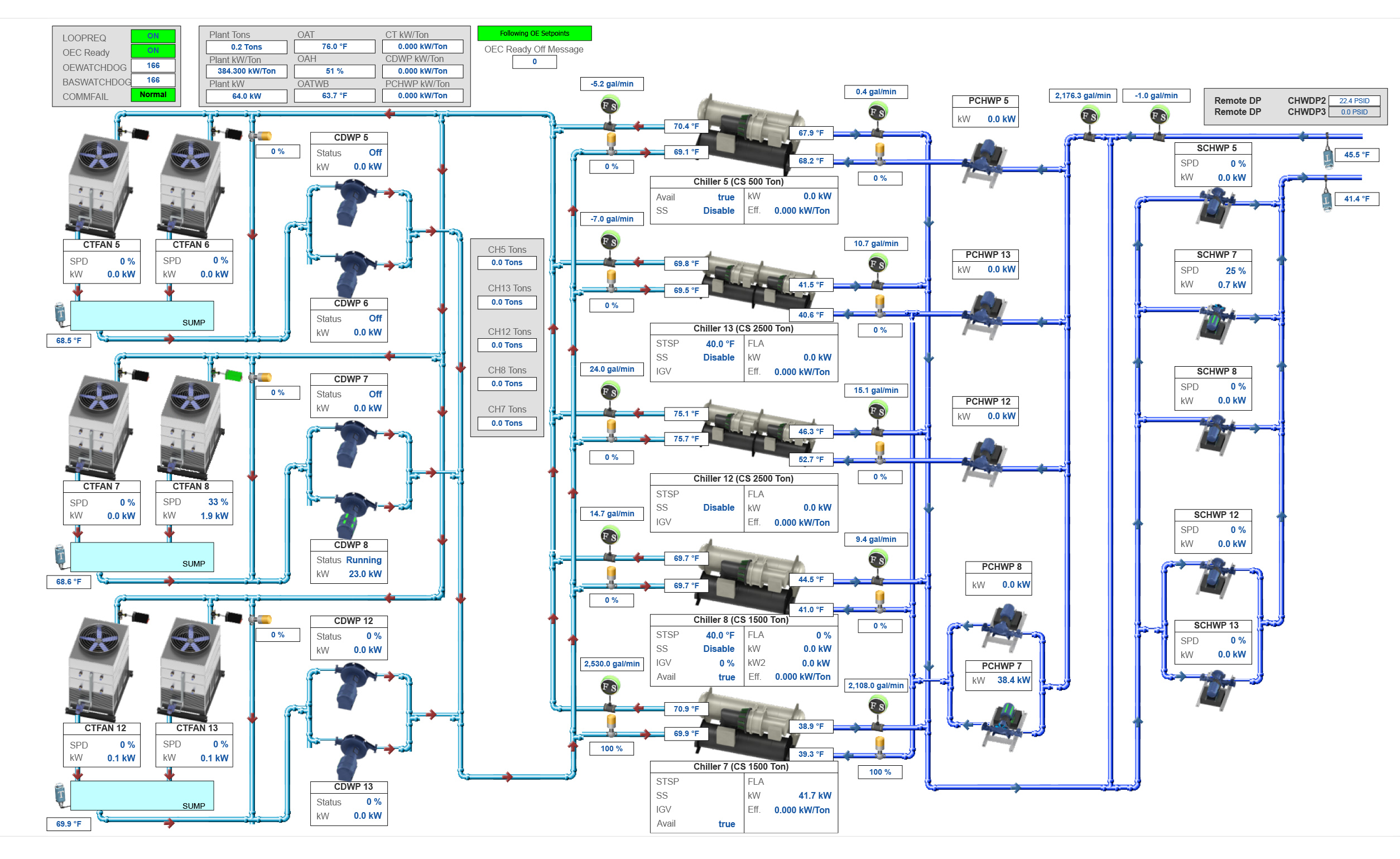University HVAC Optimization for Higher Ed
Optimum Energy helps colleges and universities across the country address the need to renew aging utility infrastructure, while facing both rising energy costs and looming decarbonization regulations. The building’s occupants are kept comfortable while labs and other sensitive facilities maintain a comfortable climate.

What We Do for Higher Ed
Optimum Energy helps universities reduce HVAC energy consumption and operational expenses all while accelerating their decarbonization goals—even amidst rising energy costs and campus growth.
How colleges and universities benefit
The OptiCx® platform dynamically and automatically adapts to fluctuating conditions to yield the lowest possible kW/ton, ensuring building systems achieve peak performance day after day, year after year. The patented Real-Time Dynamic Commissioning™ technology fights performance drift by detecting and addressing issues in real time. Sophisticated software algorithms and modeling techniques also produce a detailed, real-world baseline, which, combined with the OptiCx® Measurement and Verification tool, gives you performance data and energy savings results in real time. This allows you to quickly retool and reset when necessary.

Optimum Energy’s solutions typically reduce energy expenditures by up to 40%, helping you achieve university HVAC optimization and giving you an average payback between one and five years. OptimumLOOP® also dramatically reduces water use, further contributing to sustainability goals. Additionally, Optimum Energy helps reduce HVAC equipment maintenance costs and wear and tear by balancing energy use among all components.

OptiCx® advances sustainability goals and reduces greenhouse gas emissions by up to 50% from baseline. Reduce emissions at the source as a result of running more efficiently, aligning your university with the carbon laws and compliance set to arrive by 2030. It also contributes to Energy Star ratings (up to 18 points) and LEED certification for both existing buildings (up to 24 Energy and Atmosphere credits) and new construction (up to 19 EA credits).

Optimum’s scalable, modular approach to energy optimization standardizes and deploys HVAC management best practices across an enterprise portfolio, regardless of building type, equipment, or BAS vendor. You can address one system at a time, within one building or across many facilities. Our centralized energy management system makes it easy to access the information you need.

Solutions that Support Higher Ed
“The secret to our success is having the right balance of plant equipment, marrying that with the optimization and dispatching opportunities Optimum provides, and doing it in a way they don’t
compromise or fight each other. When they do good, we do good.

“Chiller optimization offered us the biggest bang for the buck when Baylor explored ways to reduce its energy spend. Optimum Energy is top notch.”

“By keeping the equipment operating at maximum efficiency, we’re saving money—and that’s what the optimization project is really about. I expect the plants to continue to improve and perform at a more efficient level than today. As we add more research buildings, we’ll need more chilled water capacity—we’ll definitely start off with optimization.”

“Optimum is different. I’ve got a plant that is running at absolute maximum efficiency.”
Frequently Asked Questions
University HVAC optimization deals with improving the performance of heating, ventilation, and air conditioning systems on campus, related to energy efficiency, cost reduction, and system resilience. These are attained through strategies like replacing inefficient/aging equipment or utilizing smart technologies and controls like those found in OptiCx®.
HVAC optimization is important for universities for several reasons. It helps campuses reduce energy consumption and operational costs, while maintaining or creating a comfortable and healthy indoor air environment. Enhanced efficiency also minimizes the environmental impact of such systems, resulting in a decreased carbon footprint.
